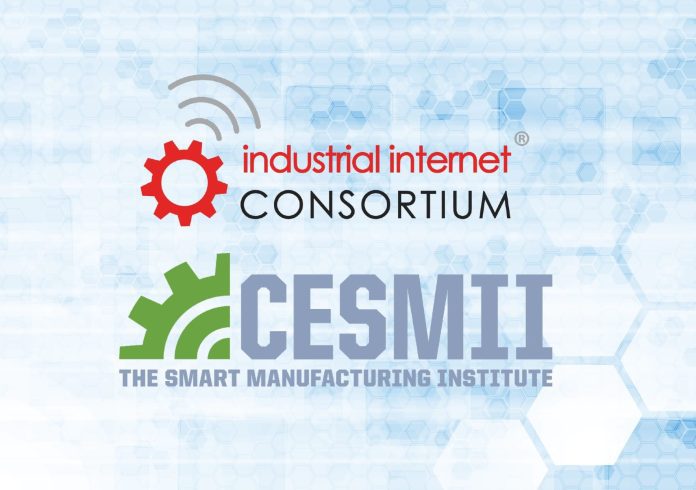Industrial Internet Consortium (IIC) and Clean Energy Smart Manufacturing Innovation Institute (CESMII), which brands itself as the Smart Manufacturing Institute in the US, are working together to accelerate the development, adoption, and monetization of industrial IoT technologies, they have said.
Specifically, they have announced joint activities in three project streams: interoperability between industrial solutions; alignment of ‘horizontal’ technology domains; plus various knowledge exchange initiatives, involving seminars and workshops.
The first two projects appear related; the last is about promoting the work, and fostering new collaboration. The interoperability initiative aims to “harmonize technology components and other elements through coordination, collaboration, and standardization”. The idea behind the horizontal alignment work is so the technology works properly, ahead of time, before it is dropped into different industrial ‘verticals’ and use cases.
The pair said smart manufacturing will only scale if a technical view is taken in-the-round of the sundry reference architectures, testbeds, knowledge, and technologies. They said their work will “accelerate the democratization of smart manufacturing across all industries, including small and medium enterprises”. They are also promoting their own smart manufacturing (SM) solutions, including an SM Innovation Platform, SM Profiles, and SM Marketplace.
Wael William Diab, chair of the IIC liaison working group and secretary of the IIC steering committee, said: “Digital transformation is at the heart of the next generation of Smart Manufacturing, bringing a host of benefits. We are looking forward to collaborating with CESMII and sharing the goal of innovation to accelerate the digitalization of industry.”
John Dyck, chief executive at CESMII, said: “Resilient manufacturing and supply chains demand a much greater degree of data and application interoperability. CESMII is committed to democratizing Smart Manufacturing technologies and knowledge to scale innovation. This IIC partnership will help us achieve those goals, establishing standard means for data modeling, information sharing and solutions interoperability.”
The IIC — which calls itself “the world’s leading organization delivering transformative business value… by accelerating adoption of a trustworthy IoT — has established partnerships with various industrial tech groups, most recently with the Automotive Edge Computing Consortium (AECC). It works as well with a number of standards bodies, open-source organizations, certification and testing bodies, and government entities. Memorably, just over a year ago at Hannover Messe in Germany, it told Enterprise IoT Insights 5G was a means-to-an-end, and nothing else.
“5G? My indifference is unbounded”, it said, in a wide-ranging interview, looking to focus on the bigger battles for industrial IoT.
In a couple of other announcements, the IIC has just released an RFP toolkit, a collection of guides and tools to help guide project and procurement managers through the process of procuring different components for an “end-to-end” industrial IoT solution. It includes an RFP wizard to help generate and manage RFPs for industrial IoT projects.
Dirk Slama, director of the co-innovation Huh at the Ferdinand-Steinbeis-Institute, said: “Digital transformation projects require unique procurement skills to navigate the considerations needed when building an RFP. The procurement process for a typical IoT project is quite different from that of an enterprise software project.”
Besides, the IIC has launched a new ‘test drive’ collaboration testbed to look at the profitability of manufacturing injection plants using artificial intelligence (AI) to enable efficient operation, minimize loss, and reduce waste. The IIC is running various test drives as “short-term, rapid-engagement pilots” for industrial IoT technologies, designed to also foster collaboration between partners.
The smart mold AI project is being led by South Korea-based IoT firm InterX. Hail Jung, co-founder at InterX and test-drive lead, said: “Manufacturing enterprises need to supply good quality products at low prices to remain competitive. They must upgrade existing core competencies using digitalization and intelligent technologies and develop a customer service model. The smart mold injection test AI drive has shown how companies can increase productivity by 10 percent and reduce downtime by 80 percent and quality loss by 9.6 percent.”

